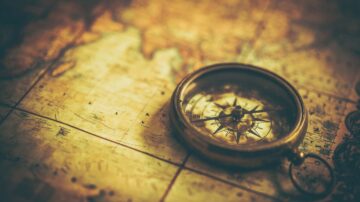The first time I heard the word “Islam,” I was in my first year of college.
Over the next few years, I found myself drawn to learning more about this word, this faith. Something about it resonated deeply within me. However, I repeatedly rejected it, believing it conflicted with the teachings I had grown up with.
I clung to pride in my upbringing and heritage, choosing them over the truth from my Creator—until the weight of that truth became too heavy to deny.
I exercised my free will in both rejecting and eventually accepting Islam. You can read more about my journey to Islam and how free will played a crucial role in that process.
Understanding Free Will and Predestination (Qadar) in Islam
The topic of free will and the human ability to choose is often misunderstood in relation to Islam. A common misconception is that Islam teaches strict predestination or fatalism—the belief that humans are predestined to go to heaven or hell regardless of their choices, beliefs, or intentions.
This misunderstanding stems from the concept of qadar (divine will), which is far more nuanced than a simplistic view of predestination or fatalism.
The Balance Between Free Will and Divine Will in Islam
As with most aspects of Islam, the truth lies on the middle path. Muslims believe that whatever is decreed for us by Allah will undoubtedly come to pass—this is His divine plan and will. However, we are also aware that we will be judged and either rewarded or punished based on our beliefs, intentions, and actions.
While we do not have complete control over every aspect of our lives, we do possess the free will to choose our beliefs and shape our intentions. If humans had absolute free will, every endeavor would succeed. However, we know from daily experiences that other forces—created by Allah—often intervene, preventing our desires from materializing.
How Free Will and Predestination Coexist in Islam
For example, we can believe that Allah is One, that He is our Creator, and that worshiping Him is the greatest act we can perform. We might plan to make salat (prayer) in the mosque, seeking Allah’s pleasure. We set our intention and prepare to go, but the car refuses to start.
In this scenario, our belief and intention remain intact, and we will be rewarded for them. Yet, due to a dead battery—a physical obstacle created by Allah—we were unable to perform salat in the mosque. Here, Allah’s will supersedes our own, but our choice remains, and it is through this choice that our reward is determined.
The Significance of Choosing to Accept Choice in Islam
Unlike any other creation, human beings accepted the responsibility of free will. For free will to exist, there must be an alternative to simply following our base desires.
This alternative is the voluntary submission to Allah’s will, using our choice and determination to rise above our desires and do what is better.
In nature, no other creature has the freedom to act on anything other than instinct. Animals do not have the choice to transcend their base urges. So why do humans possess the ability to choose between instinct and a higher purpose?
It is because, unlike other creations, humans accepted the responsibility of free will.
Quranic Perspective on Free Will and Responsibility
Allah says in the Quran:
{We did indeed offer the Trust to the Heavens and the Earth and the Mountains; but they refused to undertake it, being afraid thereof: but man undertook it; He was indeed unjust and foolish.} (33:72)
In the Tafsir (exegesis) of this verse, Ibn `Abbas explains:
“Al-Amanah [the Trust offered to all of creation] refers to [voluntary] obedience [to God]. This was offered to the heavens, the Earth, and the mountains, but they could not bear it. Then Allah said to Adam:
‘I have offered the Amanah [the Trust] to the heavens, the earth, and the mountains, and they could not bear it. Will you take it on?’ Adam asked:
‘Oh Lord, what does it involve?’
Allah replied: ‘If you do good, you will be rewarded, and if you do evil, you will be punished.’
So Adam—and all his children, that’s us—took the Amanah and bore it, and this is what is referred to in the Ayah.” (Tafsir Ibn Kathir)
Thus, the ability to choose was literally chosen by us, the children of Adam. We accepted this Amanah (Trust) from Allah, and with it, the freedom and responsibility to choose. We can choose to believe in Allah or not. We can choose to overcome our egos and urges, or we can choose to act on evil intentions. The choice is ours.
Human Potential: Better than Angels or Worse than Animals?
Because of our ability to choose, we have the potential to surpass even the angels in devotion.
Angels, created to fulfill Allah’s will and worship Him, do not have the free will to choose obedience. However, when humans submit their will to Allah, they do so by choice.
Conversely, due to this same ability to choose, we can also descend to a level lower than that of animals. Animals act purely on instinct and base desires, without the freedom to pursue a higher purpose. Yet, when humans choose to act solely on instinct and base desires, they are making a conscious choice not to strive for something greater.
It is this ability to choose that holds such significance and determines whether we are worthy of reward or punishment. We accepted this responsibility, and with it comes the potential to achieve greatness or to fall into disgrace.
Conclusion: The Path of Free Will in Islam
The choice is ours: to be better than angels or worse than animals. The beauty of Islam lies in the balance between divine will and human free will, allowing us the freedom to choose our path and the responsibility to face the consequences of those choices.
May Allah (SWT) guide us all to His Straight Path.
By Theresa Corbin

